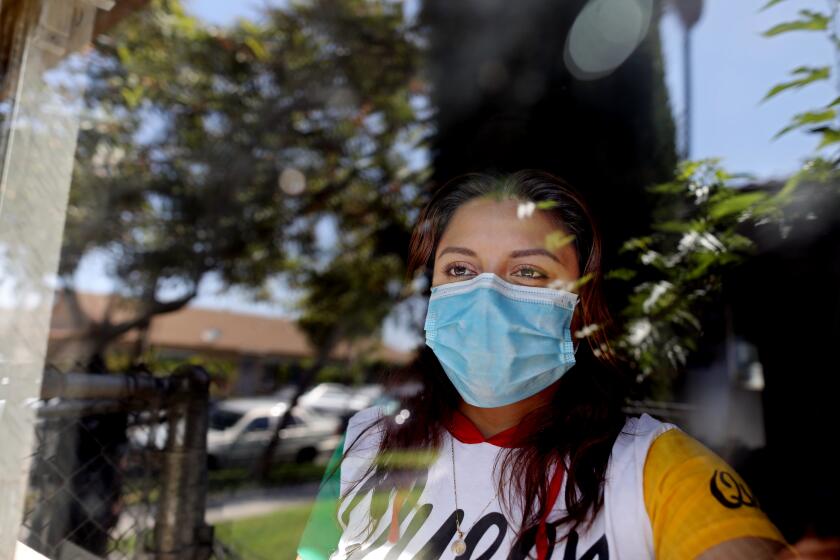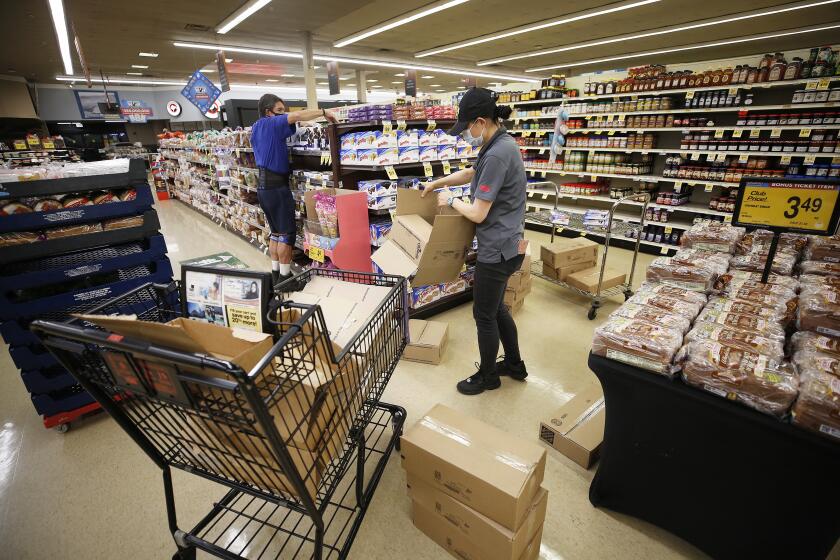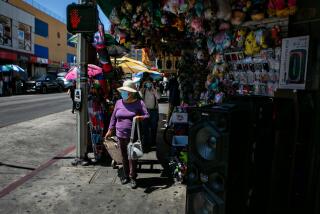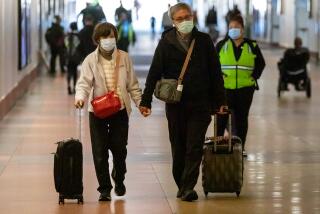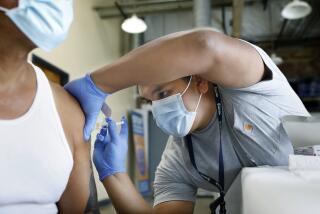Coronavirus cases spike among Marin County essential workers as more testing is urged

- Share via
While many counties across California have charged ahead with reopening after months of restrictions aimed at stemming the spread of the coronavirus, Marin County officials have been largely satisfied with staying in the slow lane.
Over the past several weeks, the state has loosened its stay-at-home order, allowing stores to reopen, hair salons and barbershops to resume services and patrons to once again dine inside restaurants across large swaths of California. Marin County, however, reopened office space, outdoor retail sales and outdoor dining just this week.
Officials say they’re taking it slow for a reason. Results of recent testing show a spike in infections among essential workers whose jobs require them to frequently interact with the public, said Dr. Matt Willis, Marin County’s public health officer.
Grocery store employees are among those who test positive most frequently. Those who work in other sectors, however, including food service, construction, gas stations, school services and landscaping, are also testing positive more often.
There also has been a slight uptick in the number of workers who unknowingly bring the virus home with them and infect family members, Willis said.
“This is a major concern for the next phase,” he said. “We need to be careful about how we sequence reopening and take every precaution we can to protect people.”
The troubling trend has also affected other counties in California that have sought to move more quickly to reopen sections of the economy stymied by the pandemic.
Many essential workers — cashiers, truck drivers, meat packers — are Latino. They can’t stay home. And they’re being hit hard by the novel coronavirus.
Nearby Sonoma County has recently seen an increase in instances of the virus being transmitted between workers. The rise in infections and hospitalizations was enough of a concern that public health officials last week decided to temporarily slow down reopening after having loosened restrictions on restaurants and other businesses.
In Marin County, health officials said last week that more residents had been diagnosed with COVID-19 during that period of time than in any prior week during the pandemic. The county, which had seen a total of 501 coronavirus infections and 15 deaths as of Monday, has also nearly tripled its testing capacity in recent weeks.
Although the spike in cases is partly from an increase in testing, Willis said the data showed that a greater proportion of people being tested were infected with the virus. The county’s percent-positive rate rose from 4.4% to 5.3% over the past several days.
“This suggests we’re likely seeing at least a slight rise in actual virus transmission,” he said.
In response to the increase, public health officials are working with employers to get their workers tested for the virus on a monthly basis. Free testing is available by appointment at the Civic Center and Canal neighborhood in San Rafael. In some cases, county health officials are testing people at their jobs.
When officials offered to test United Markets’ employees at its stores last week, President Kelly Smith jumped at the opportunity. Since the beginning of the pandemic, she’s been well aware that her employees are among the most likely to become infected, even with mandated safety measures such as plastic barriers and face coverings, she said.
Supermarkets have become ground zero in the fight against the coronavirus across the United States. Employees have had to manage fights, panic attacks and frustrated customers while trying to keep depleted shelves stocked amid an altered supply chain.
Some workers have received bonuses or temporary raises dubbed “hero pay.” But a growing number of grocery workers across the U.S. have fallen ill from the virus, and dozens have died.
For the last few months, grocery stores have served as public theaters for the traumatized American consumer.
Marin County health officials set up mobile testing sites at both United Markets locations last week to administer tests to most of the grocery stores’ 145 employees.
“For the employees — well for anyone, really — it’s a little bit intimidating to go get tested at a site somewhere by yourself,” Smith said. “This we were able to do together, and I think that made it a little easier. My whole philosophy is taking care of my employees. If they’re good, then I’m good.”
Smith hasn’t received the results of all of the tests, but it appears that one employee may have tested positive, she said. She immediately told the person to stay home and sanitized the store, a process that has become typical.
For public health officials, widespread testing of essential workers provides an easy way for them to identify cases and stem an outbreak. Instances of workers transmitting the virus to people in their households is an “important driver of the epidemic that we need to get in front of,” Willis said.
“We’re showing, when we do test frequently, we’re seeing cases we otherwise wouldn’t have discovered, which allows us to intervene earlier and prevent the spread to other people,” Willis said.
More to Read
Sign up for Essential California
The most important California stories and recommendations in your inbox every morning.
You may occasionally receive promotional content from the Los Angeles Times.
